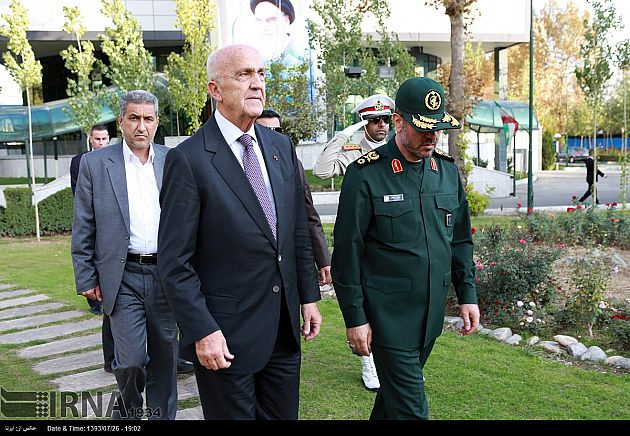Reasons behind Opposition to Tehran’s Arms Aid to Beirut

A short while has passed since the issue of the Islamic Republic of Iran’s readiness to send military aid to the Lebanese army was proposed. But this issue has raised the sensitivity of the western and Arab states. This sensitivity increased with the visit made by Samir Moqbel, the Defense Minister of Lebanon, to Tehran when there was a greater possibility of Iran’s military aid to Lebanon despite the public opposition of the opposite front which is the US and Saudi Arabia. There are also different political views inside Lebanon with regard to this issue. The March 14th Alliance and the Hariri supporters are against this measure taken by the Islamic Republic of Iran, even though this aid is given to Lebanon’s national army. Therefore, it is expected that inside and outside pressures will be exerted on the government of Tamam Salam in opposition to receiving arms from Iran.
Basically, the military structure of the Lebanese army is founded on foreign aids. The US, France, Russia and some other countries have long experiences in giving military aids to this country’s army. But these aids do not meet Lebanon’s needs at the present time. Why? The Lebanese army has, for many years, been responsible for providing domestic security and for the police force of this country. Following the clashes between the army and the Zionist military during the last two years in the south of Lebanon, which led to the martyrdom of Lebanese military forces, the approach of this institution has been directed towards the protection of the southern borders and recently the protection of the eastern borders as well. The Lebanese army has practically shown that it attempts to leave its traditional military framework and, naturally, it would need more equipment and arms. But is the increasing military capability of this army practically possible?
Lebanon’s position is very sensitive in the Middle East with its borders with the Zionist regime and the daily threats. It is the natural right of the national institution of this country to receive gifts from its allied governments, which practically and openly support it, for its defense of security and stability, especially these days when there are radical terrorist groups which are active inside this country and along its borders. The army of Lebanon, as the manifestation of its power, needs to be strengthened.
All movements which are affiliated with the West are now concerned about Iran’s military aid to Lebanon. The interesting point is that supporting terrorist and radical groups, such as al-Qaeda and ISIS, has been internationally condemned in all its forms. Under conditions when there has been no protest against the behind-the-scenes military and logistic aid given by certain regional governments to these groups, the Islamic Republic of Iran’s attempts to officially and openly send military aid to Lebanon have been faced with such negative reactions. These reactions have even reached the point of sometimes threatening Lebanon that the usual aids given to them would be cut off.
Their concerns could be analyzed from two angles: 1-Preventing the strengthening of the military power of the Lebanese army, even in defense and protective systems, which is, in fact, aimed at guaranteeing the security of the Zionist regime 2-Preventing the expansion of the Islamic Republic of Iran’s influence in the region particularly in Lebanon’s borders with the Zionist regime.
The fact is that the protest against the strengthening of the power of the national army is based on an old illogical equation which attempts to keep Lebanon as the weakest link of Israel’s neighboring countries, thus, it should not be equipped, especially if the strengthening of the army alongside the resistance and its effective arms would lead to the strengthening of the defensive power of this country. It should be noted that any military aid given by the US and the West to the Arab states of the region is conditioned on its non-deployment against the Israeli occupying regime. But this condition has never been set for Israel and, even when it was needed, military aids were given to them by air. But will the Lebanese army accept this commitment?
The last point is that helping Lebanon is not only limited to this issue. There have been cases of the reconstruction of the destroyed and damaged areas by Israel’s air strikes in 1996 and 2006 and economic aids were given to the people who were dealt damages in these incidents.

